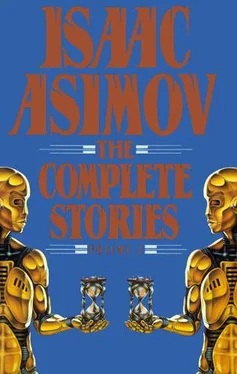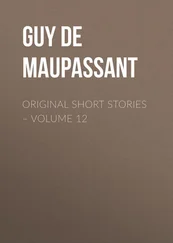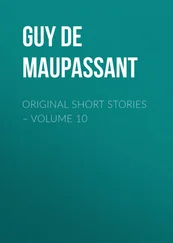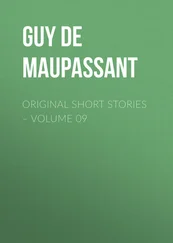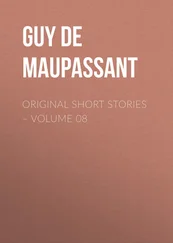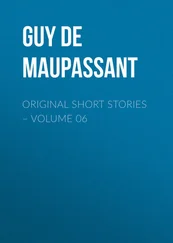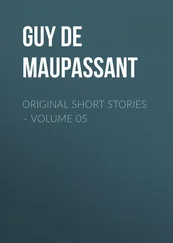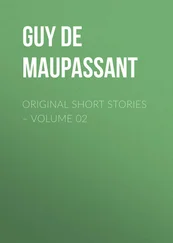Isaac Asimov - Short Stories Vol.1
Здесь есть возможность читать онлайн «Isaac Asimov - Short Stories Vol.1» весь текст электронной книги совершенно бесплатно (целиком полную версию без сокращений). В некоторых случаях можно слушать аудио, скачать через торрент в формате fb2 и присутствует краткое содержание. Жанр: Фантастика и фэнтези, на английском языке. Описание произведения, (предисловие) а так же отзывы посетителей доступны на портале библиотеки ЛибКат.
- Название:Short Stories Vol.1
- Автор:
- Жанр:
- Год:неизвестен
- ISBN:нет данных
- Рейтинг книги:4 / 5. Голосов: 1
-
Избранное:Добавить в избранное
- Отзывы:
-
Ваша оценка:
- 80
- 1
- 2
- 3
- 4
- 5
Short Stories Vol.1: краткое содержание, описание и аннотация
Предлагаем к чтению аннотацию, описание, краткое содержание или предисловие (зависит от того, что написал сам автор книги «Short Stories Vol.1»). Если вы не нашли необходимую информацию о книге — напишите в комментариях, мы постараемся отыскать её.
Short Stories Vol.1 — читать онлайн бесплатно полную книгу (весь текст) целиком
Ниже представлен текст книги, разбитый по страницам. Система сохранения места последней прочитанной страницы, позволяет с удобством читать онлайн бесплатно книгу «Short Stories Vol.1», без необходимости каждый раз заново искать на чём Вы остановились. Поставьте закладку, и сможете в любой момент перейти на страницу, на которой закончили чтение.
Интервал:
Закладка:
And while Araman turned the pages, Dr. Potterley's voice continued in a soft monotone.
The historian was saying, "I must explain that my problem is quite an important one. Carthage was ancient commercialism brought to its zenith. Pre-Roman Carthage was the nearest ancient analogue to pre-atomic America, at least insofar as its attachment to trade, commerce and business in general was concerned. They were the most daring seamen and explorers before the Vikings; much better at it than the overrated Greeks.
"To know Carthage would be very rewarding, yet the only knowledge we have of it is derived from the writings of its bitter enemies, the Greeks and Romans. Carthage itself never wrote in its own defense or, if it did, the books did not survive. As a result, the Carthaginians have been one of the favorite sets of villains of history and perhaps unjustly so. Time viewing may set the record straight."
He said much more.
Araman said, still turning the reproduction sheets before him, "You must realize, Dr. Potterley, that chronoscopy, or time viewing, if you prefer, is a difficult process."
Dr. Potterley, who had been interrupted, frowned and said, "I am asking for only certain selected views at times and places I would indicate."
Araman sighed. "Even a few views, even one ... It is an unbelievably delicate art. There is the question of focus, getting the proper scene in view and holding it. There is the synchronization of sound, which calls for completely independent circuits."
"Surely my problem is important enough to justify considerable effort."
"Yes, sir. Undoubtedly," said Araman at once. To deny the importance of someone's research problem would be unforgivably bad manners. "But you must understand how long-drawn-out even the simplest view is. And there is a long waiting line for the chronoscope and an even longer waiting line for the use of Multivac which guides us in our use of the controls."
Potterley stirred unhappily. "But can nothing be done? For two years-"
"A matter of priority, sir. I'm sorry. . . . Cigarette?"
The historian started back at the suggestion, eyes suddenly widening as he stared at the pack thrust out toward him. Araman looked surprised, withdrew the pack, made a motion as though to take a cigarette for himself and thought better of it.
Potterley drew a sigh of unfeigned relief as the pack was put out of sight.
He said, "Is there any way of reviewing matters, putting me as far forward as possible. I don't know how to explain-"
Araman smiled. Some had offered money under similar circumstances which, of course, had gotten them nowhere, either. He said, "The decisions on priority are computer-processed. I could in no way alter those decisions arbitrarily."
Potterley rose stiffly to his feet. He stood five and a half feet tall. "Then, good day, sir."
"Good day, Dr. Potterley. And my sincerest regrets."
He offered his hand and Potterley touched it briefly.
The historian left, and a touch of the buzzer brought Araman's secretary into the room. He handed her the folder.
"These," he said, "may be disposed of."
Alone again, he smiled bitterly. Another item in his quarter-century's service to the human race. Service through negation.
At least this fellow had been easy to dispose of. Sometimes academic pressure had to be applied and even withdrawal of grants.
Five minutes later, he had forgotten Dr. Potterley. Nor, thinking back on it later, could he remember feeling any premonition of danger.
During the first year of his frustration, Arnold Potterley had experienced only that-frustration. During the second year, though, his frustration gave birth to an idea that first frightened and then fascinated him. Two things stopped him from trying to translate the idea into action, and neither barrier was the undoubted fact that his notion was a grossly unethical one.
The first was merely the continuing hope that the government would finally give its permission and make it unnecessary for him to do anything more. That hope had perished finally in the interview with Araman just completed.
The second barrier had been not a hope at all but a dreary realization of his own incapacity. He was not a physicist and he knew no physicists from whom he might obtain help. The Department of Physics at the university consisted of men well stocked with grants and well immersed in specialty. At best, they would not listen to him. At worst, they would report him for intellectual anarchy and even his basic Carthaginian grant might easily be withdrawn.
That he could not risk. And yet chronoscopy was the only way to carry on his work. Without it, he would be no worse off if his grant were lost.
The first hint that the second barrier might be overcome had come a week earlier than his interview with Araman, and it had gone unrecognized at the time. It had been at one of the faculty teas. Potterley attended these sessions unfailingly because he conceived attendance to be a duty, and he took his duties seriously. Once there, however, he conceived it to be no responsibility of his to make light conversation or new friends. He sipped abstemiously at a drink or two, exchanged a polite word with the dean or
such department heads as happened to be present, bestowed a narrow smile on others and finally left early.
Ordinarily, he would have paid no attention, at that most recent tea, to a young man standing quietly, even diffidently, in one corner. He would never have dreamed of speaking to him. Yet a tangle of circumstance persuaded him this once to behave in a way contrary to his nature.
That morning at breakfast, Mrs. Potterley had announced somberly that once again she had dreamed of Laurel; but this time a Laurel grown up, yet retaining the three-year-old face that stamped her as their child. Potterley had let her talk. There had been a time when he fought her too frequent preoccupation with the past and death. Laurel would not come back to them, either through dreams or through talk. Yet if it appeased Caroline Potterley-let her dream and talk.
But when Potterley went to school that morning, he found himself for once affected by Caroline's inanities. Laurel grown up! She had died nearly twenty years ago; their only child, then and ever. In all that time, when he thought of her, it was as a three-year-old.
Now he thought: But if she were alive now, she wouldn't be three, she'd be nearly twenty-three.
Helplessly, he found himself trying to think of Laurel as growing progressively older; as finally becoming twenty-three. He did not quite succeed.
Yet he tried. Laurel using make-up. Laurel going out with boys. Laurel- getting married!
So it was that when he saw the young man hovering at the outskirts of the coldly circulating group of faculty men, it occurred to him quixotically that, for all he knew, a youngster just such as this might have married Laurel. That youngster himself, perhaps. . . .
Laurel might have met him, here at the university, or some evening when he might be invited to dinner at the Potterleys'. They might grow interested in one another. Laurel would surely have been pretty and this youngster looked well. He was dark in coloring, with a lean intent face and an easy carriage.
The tenuous daydream snapped, yet Potterley found himself staring foolishly at the young man, not as a strange face but as a possible son-in-law in the might-have-been. He found himself threading his way toward the man. It was almost a form of autohypnotism.
He put out his hand. "I am Arnold Potterley of the History Department. You're new here, I think?"
The youngster looked faintly astonished and fumbled with his drink, shifting it to his left hand in order to shake with his right. "Jonas Foster is my name, sir. I'm a new instructor in physics. I'm just starting this semester."
Читать дальшеИнтервал:
Закладка:
Похожие книги на «Short Stories Vol.1»
Представляем Вашему вниманию похожие книги на «Short Stories Vol.1» списком для выбора. Мы отобрали схожую по названию и смыслу литературу в надежде предоставить читателям больше вариантов отыскать новые, интересные, ещё непрочитанные произведения.
Обсуждение, отзывы о книге «Short Stories Vol.1» и просто собственные мнения читателей. Оставьте ваши комментарии, напишите, что Вы думаете о произведении, его смысле или главных героях. Укажите что конкретно понравилось, а что нет, и почему Вы так считаете.
